The seventh-largest economy in the world, the Republic of Italy, is located in the heart of the Mediterranean. With an area of 301,340 square kilometers and a population of 60.20 million, Italy emerged from the Roman Empire, one of the greatest European empires. As a result, it is home to many castles and buildings in various architectural styles such as Romanesque, Gothic, Baroque, and Neoclassical. Additionally, Italy boasts a 7,600 km coastline, beautiful lakes, stunning cliffs, and many lush national parks. With all these natural and man-made wonders, Italy is a major magnet for tourists.
It is estimated that more than 50 million tourists visit Italy each year by obtaining an Italian visa. Tourism plays a very important role in Italy’s economy, contributing to more than 60% of the country’s national income. Travelers from around the world who wish to enter Italy for short stays can do so by obtaining various types of Italian visas. In this article from Elm Vira’s series, we will discuss the costs of obtaining an Italian visa.
Who needs an Italian visa?
If you fall under any of the following categories, you will need a short-stay visa to enter Italy and other Schengen Area countries:
- You are a citizen of a third country that does not have a visa waiver agreement with Schengen countries.
- You are a citizen of a third country who has signed a visa waiver agreement with Schengen countries but has previously been rejected from entering Italy or any other country.
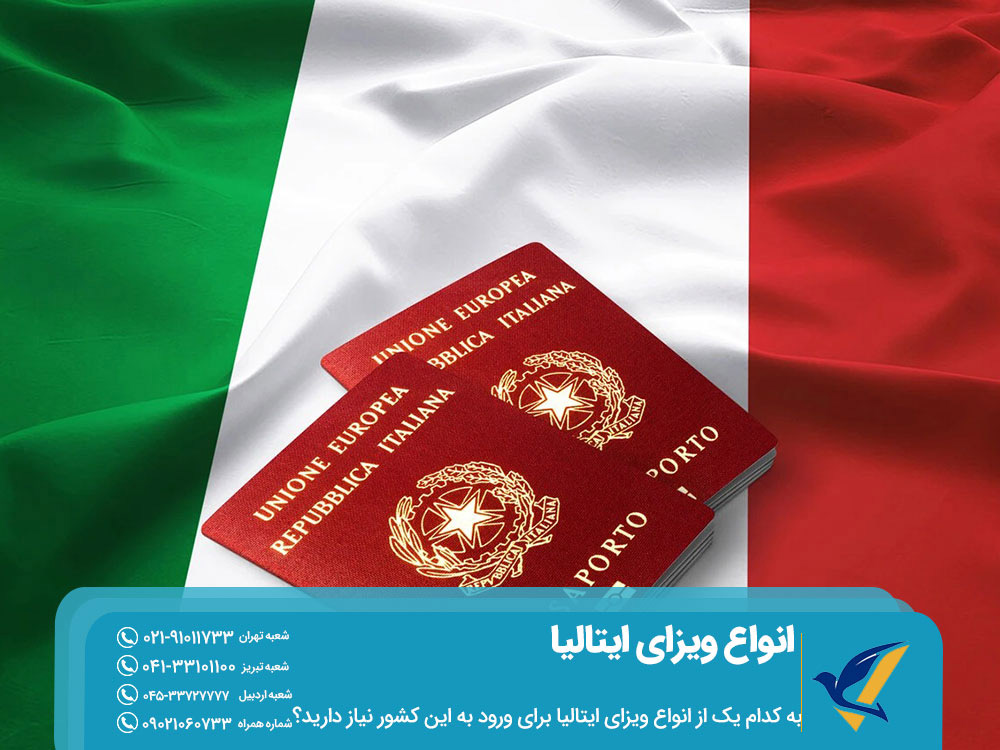
Which Type of Italian Visa Do You Need to Enter the Country?
If you intend to visit Italy for a short stay (up to 90 days), you need to apply for a short-stay Schengen visa for Italy, also known as a Type C visa. Depending on your purpose for entering Italy, you can apply for one of the following types of Italian visas:
- Airport Transit Visa for Italy: This visa is designed for individuals who need to transit through one of Italy’s airports to reach their destination outside the Schengen Area.
- Tourist Visa for Italy: This visa is for those who wish to travel to Italy for holidays, tourism, or sightseeing.
- Visitor Visa for Italy: This type of visa is designed for people who want to visit friends or family members residing in Italy or for other similar purposes.
- Business Visa for Italy: The business visa is for individuals who need to participate in business activities in Italy.
- Official Visit Visa for Italy: This visa is intended for official delegations traveling to Italy for official purposes.
- Medical Visa for Italy: The medical visa is issued to individuals seeking medical treatment in Italy.
- Student Visa for Italy: The student visa is for students who wish to study in Italy for a course lasting up to 3 months.
- Visa for Cultural, Sports, and Film Personalities: This type of visa is for individuals who want to participate in activities related to culture, sports, or the film industry in Italy.
Having an Italian visa does not guarantee entry into the country. Before the Italian border authorities allow you to enter, there are certain conditions that must be met.
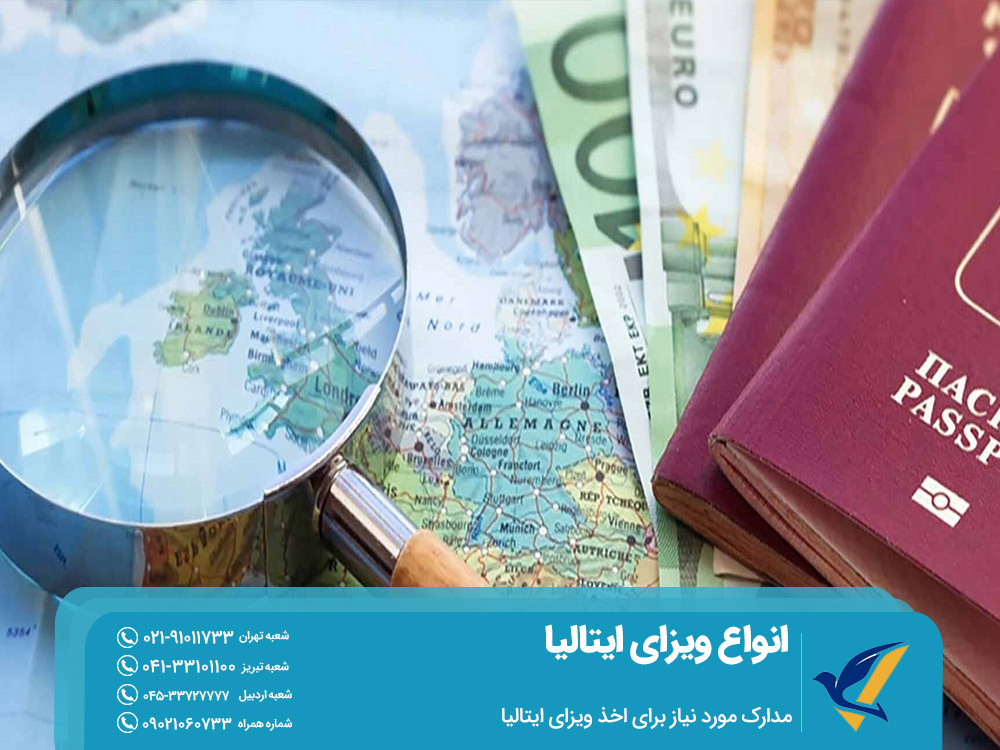
Required Documents for Applying for an Italian Visa
The following documents are required for all types of Italian visas, including short-stay Schengen visa applications:
- Visa Application Form: Applicants must complete the form, print it, and sign it. Ensure that the information provided in this form matches the details in the other required documents for the Italian visa application.
- 6×4 Passport-Size Photo: The photo must have been taken within the last 6 months and meet the specific requirements for Italian visa applications.
- Valid Passport: You must submit your passport along with the other required visa documents. Ensure that your passport has at least two blank pages, was issued within the last 10 years, and is valid for at least three months beyond your planned departure from Italy and the entire Schengen Area.
- Residence Permit (if applicable): If you are not a national of the country from which you are applying for the Italian visa, you must include a copy of your residence permit.
- Accommodation Proof: This could be a hotel booking or a completed and signed sponsor form along with a copy of the passport and residence permit if you are staying with a host in Italy.
- Travel Documents (if applicable): These documents include a round-trip ticket, travel itinerary, proof of available personal transportation, or a ferry ticket if necessary.
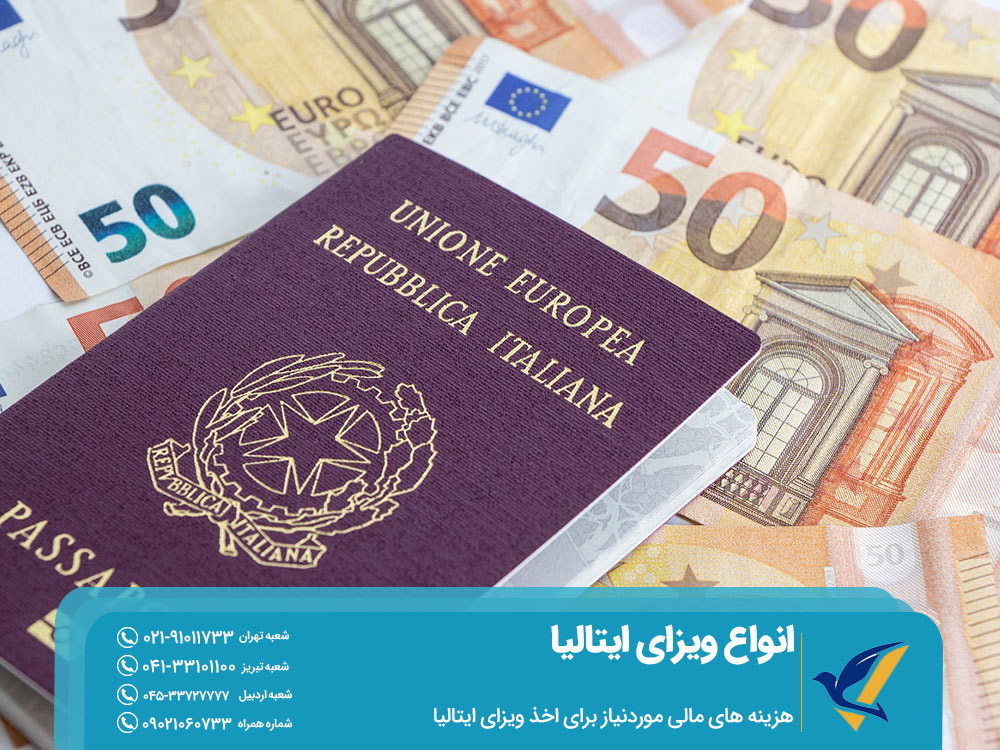
Financial Requirements for Obtaining an Italian Visa
The following documents and financial requirements are necessary for applying for all types of Italian visas:
- Schengen Travel Insurance: Health insurance for Italy and the Schengen Area is required. The minimum coverage for Schengen is 30,000 EUR. Travel insurance policies for foreigners visiting Italy and meeting Italian visa conditions can be purchased online from Europe Assistance or Mondial Care. Insurance policies issued by both companies are accepted by Italian authorities worldwide.
- Proof of Sufficient Financial Means for the Duration of Stay in Italy: Italian authorities require you to prove that you have sufficient financial means to support yourself during your stay. Depending on the duration of your stay, you need to show that you have the following funds:
- Up to 5 days: Total of 269.60 EUR per person and 212.81 EUR for two or more people.
- 6 to 10 days: 44.93 EUR per person and 26.33 EUR for two or more people.
- 11 to 20 days: 51.64 EUR per person and 25.85 EUR for two or more people, plus 36.67 EUR daily per person and 22.21 EUR for two or more people.
- More than 20 days: 206.58 EUR per person and 118.79 EUR for two or more people, plus 27.89 EUR daily per person and 17.04 EUR for two or more people.
- Proof of Civil Status: Documents may include a marriage certificate, children’s birth certificates, spouse’s death certificate, etc. Civil status documents should not be older than 6 months.
- Copy of Relevant Pages in Your Passport: This includes pages containing previous visas (if applicable).
- Cover Letter: A personal letter explaining why you are requesting a visa to Italy, the duration of your stay, your intended departure date, and other relevant details about your trip (if applicable).
- Document Checklist: Mark the documents you have submitted and attach the checklist to your visa application. The checklist is usually available at the Italian consulate or embassy.

Additional Requirements for Obtaining an Italian Visa Based on Employment Status
Here are the specific requirements for obtaining various types of Italian visas based on your employment status:
- For Employees:
- Employment Contract or Reference Letter: This should include details such as the start date, job title, annual salary, and requested vacation period. Sometimes this is also known as a non-objection certificate.
- Pay Slips for the Last Three Months.
- Bank Statement for the Last Three Months.
- For Self-Employed Individuals:
- Copy of Business License or Establishment Certificate.
- Bank Statement for the Last Three Months of the Business.
- Income Tax Return (ITR) Documents.
- For Students:
- Enrollment Certificate.
- Non-objection Certificate from School or University.
- For Retirees:
- Pension Certificate for the Last Six Months.
Additional Requirements for Applicants Under Legal Age (Minor Applicants)
Minors applying for a short-stay Italian visa, or parents applying for a visa for their minor child, must meet additional Italian visa requirements:
- Birth Certificate of the Minor Traveling to Italy: A copy of this certificate may be required.
- Visa Application Form: Signed by both parents.
- Letter from Both Parents: This letter should confirm permission for travel and financial responsibility for the minor’s journey.
- Certified Copy of the Parents’ Passport/Birth Certificate.
- Family Court Order: If one parent has sole custody of the child.
If the Minor is Traveling Without Family and Accompanied by Another Adult:
- Declaration of Responsibility: A signed letter from the accompanying adult, assuming responsibility for the minor’s travel to Italy.
- Original and Copy of Passport Page: Contains the details of the adult accompanying the minor, along with a valid visa copy.
- Notarized Parental Consent: Signed by both parents, granting permission for the minor to travel to Italy.
For Nationals of Pakistan, Afghanistan, Iraq, Palestine, and Holders of Travel Documents:
- Birth Certificate or Consular Statement: This document should include the full names of both parents. Holders of travel documents (with the three-letter code XXA or XXB mentioned in ICAO) must also provide this document.
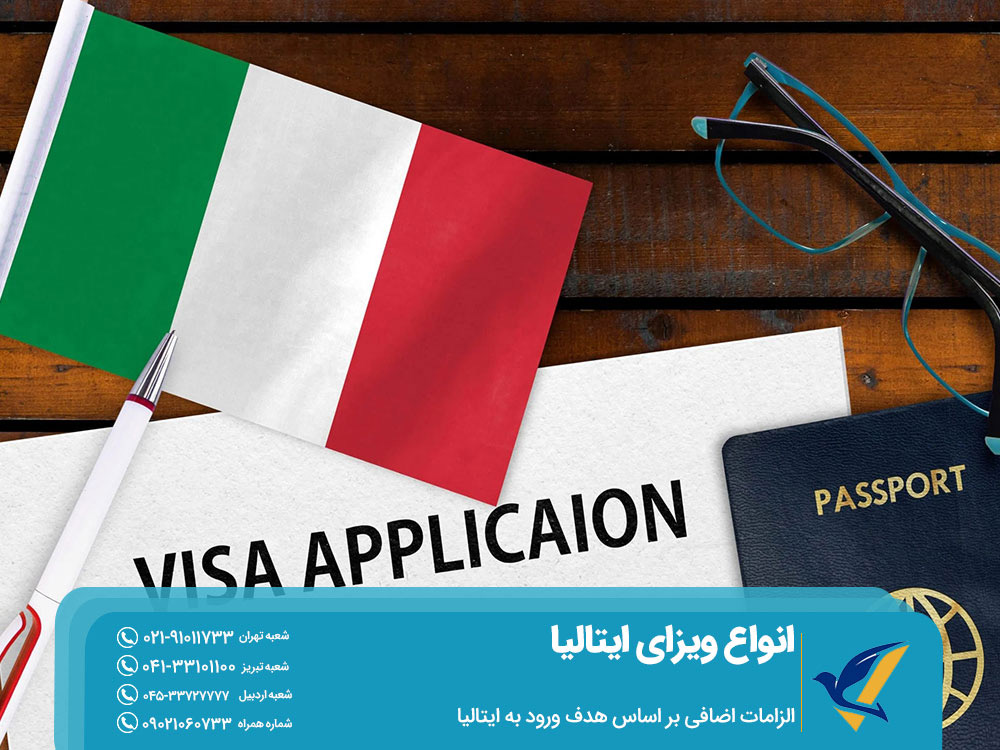
Additional Requirements Based on the Purpose of Entry to Italy
Depending on the purpose of your visit to Italy, you will need to provide additional documents as part of your short-stay visa application. The specific additional requirements for an Italian visa based on your travel purpose are as follows:
1. Airport Transit Visa Requirements for Italy
If Italy is not your final destination, but you need to land at one of Italy’s airports to catch another flight to a non-Schengen destination, you must apply for an Italian Airport Transit Visa. Not all nationals of Schengen visa-regulated countries require this type of visa. Only nationals of a few countries are required to apply for this visa. Check the list of nationals who need an Italian Airport Transit Visa to see if you are required to apply.
When applying for an Airport Transit Visa for Italy, you must submit the following additional documents:
- A valid visa (if necessary) for the final destination country you are traveling to.
- A flight ticket to the final country of destination.
2. Seafarer Transit Visa for Italy
If you are a seafarer who must disembark at an Italian port before boarding another ship that will take you to a non-Schengen country, or if you are traveling to Italy as a seafarer, you must apply for a seafarer transit visa. When applying for a transit visa for Italy, you need to submit the following additional documents:
- A valid visa (if necessary) for the last country you are traveling to.
- A flight ticket to the final destination country.
- Original and photocopy of the seafarer’s certificate (only required for seafarers).
- Letter from the inviting shipping company: A letter from the inviting shipping company in the Schengen country where the seafarer will disembark.
- An employment contract or contract with the shipping company/ship for boarding purposes (only required for seafarers).
- Medical certificate (only required for seafarers).
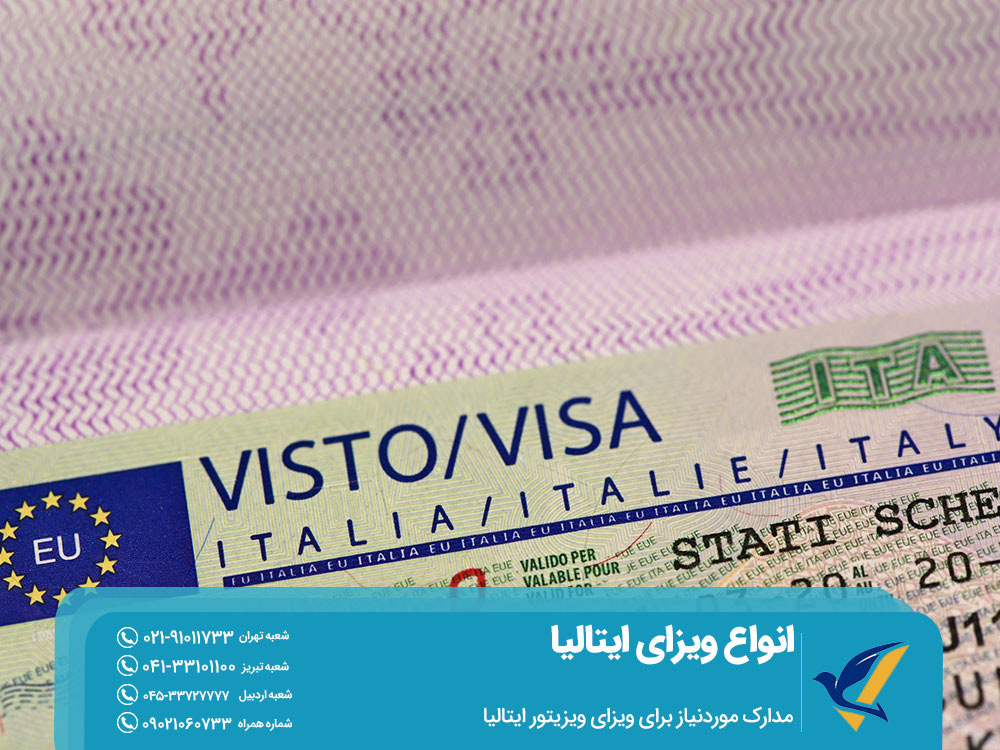
2. Required Documents for Visitor Visa for Italy
The Visitor Visa is one of the types of Italian visas. When applying for a Visitor Visa to visit family members or friends in Italy, you will need to provide the following documents:
- Invitation letter from a family member or friend residing in Italy who is inviting you to visit.
- Host letter: A letter from your host in Italy, along with a copy of their passport or residence permit in Italy.
3. Business Visa Requirements for Italy
If you are traveling to Italy to participate in business activities, such as visiting a business or company to hold meetings, conduct business transactions, or participate in training, you must apply for a Business Visa for Italy. The following documents are required for applying for a business visa:
- Cover letter from the inviting Italian company: This letter should include your full name, travel dates, purpose of the visit, duration of stay, and sponsor details, and should be signed by an authorized individual.
- Company registration certificate of the inviting company.
- Letter from your employer: This letter should outline the purpose of your visit to Italy.
- Proof of financial support: Depending on the costs incurred during your stay in Italy, the employer or partner company should confirm their financial support in the invitation letter.
4. Student Visa Requirements for Italy
Anyone wishing to participate in educational, training, or internship programs in Italy, San Marino, or even Vatican City for less than 90 days must apply for an Italian Student Visa. The required documents for applying for this visa include:
- Non-objection certificate from the educational institution you are currently enrolled in (if applicable).
- Internship contract: The signed agreement between the company in Italy and the intern.
- Enrollment certificate: A copy of the enrollment acceptance letter from the Italian institution, clearly indicating the duration of the program.
- Value declaration: Educational documents of the applicant recognized by the consular office. If not required, the institution or school should directly recommend the applicant to the consulate.

5. Medical Visa Requirements for Italy
If you intend to seek medical treatment in Italy, you must apply for a Medical Visa. When applying for this visa to receive medical care in Italy, you are required to submit the following documents:
- Local medical report issued by a doctor, clinic, or hospital in the home country, confirming that you need medical treatment in Italy.
- Medical certificate from an Italian doctor or hospital that confirms the date of your appointment and your medical condition. This certificate should verify that the hospital can provide the necessary medical treatment and has accepted you.
- Proof of financial arrangements made for the treatment.
- Official confirmation of treatment or appointment by the receiving medical institution (hospital or clinic) in Italy.
6. Visa for Cultural, Sports, Cinematic, or Religious Purposes
If you are traveling to Italy to participate in a cultural, sports, or religious event, or if you are part of a film crew traveling to Italy for filming, you must apply for the appropriate Italian visa for cultural, sports, cinematic, or religious purposes. When applying for a visa for these events, the following documents must be provided:
- Event information such as: Invitation letter from the relevant organization in Italy detailing the nature of the events or activities to be held.
- Entry tickets to the relevant event.
- Proof of registration for the event.
- Event schedule details for the event you will be attending in Italy.
- Other documents provide the names of applicants (group members) and information about the event.
- Proof of past performances: Certificates of participation in previous festivals or events (cultural, religious), sports competitions, certificates of winners, or awards received in global/international sports competitions.
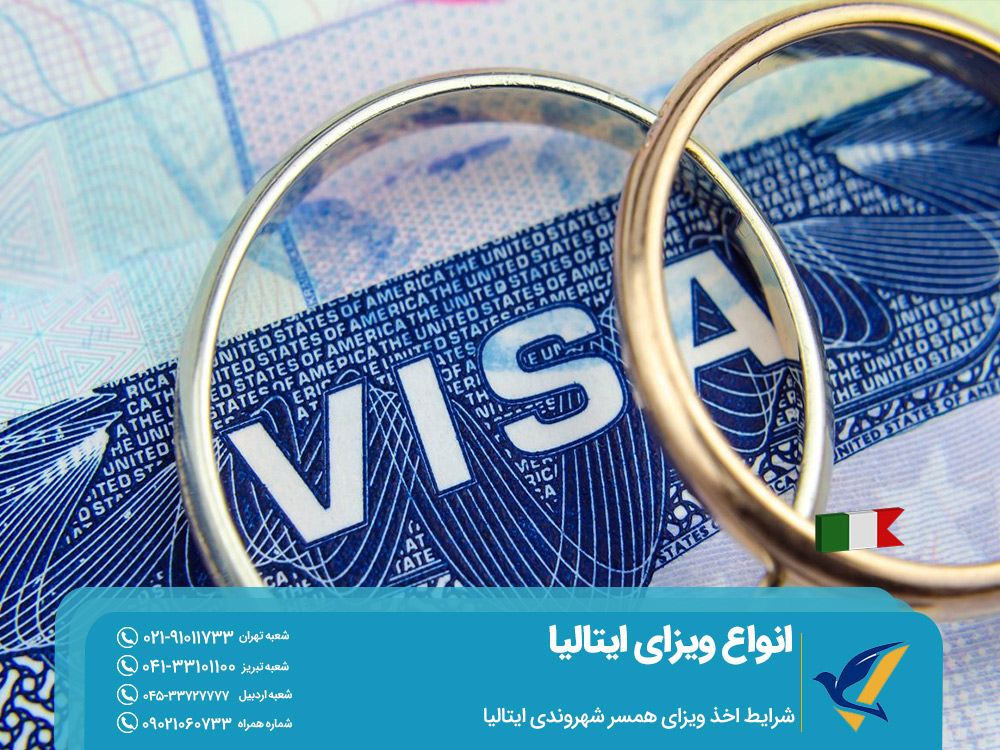
7. Visa Requirements for Spouses of Italian Citizens
If your spouse is an Italian citizen and you wish to travel to Italy, you must apply for the appropriate Italian visa as a spouse of an Italian citizen. The required documents for applying for this visa include:
- Proof of Italian citizenship (such as an ID card, consular card, Italian nationality certificate, or citizenship decree).
- Italian marriage certificate.
- Italian family record book.
8. Visa for Official Visits to Italy
The official visit visa is one of the types of Italian visas that you need to apply for if you meet the requirements. This visa is for individuals invited to participate in official meetings, consultations, negotiations, exchange programs, or special events in Italy as part of an official delegation. The required documents for applying for this visa include:
- A copy of the official invitation letter.
- Evidence regarding the purpose of travel (meetings, events organized by intergovernmental organizations, consultations, etc.).
How to Apply for a Short-Term Italian Visa
To complete the application process for various types of short-term Italian visas, follow these steps:
- Determine where to apply for the Italian visa.
- Identify the type of visa you need.
- Fill out the short-term visa application form for Italy.
- Collect the required documents for the Italian visa.
- Schedule a visa interview with the Italian embassy, consulate, or visa application center in your country of residence.
- Attend the visa interview.
- Wait for the processing of your Schengen visa for Italy.
Where to Apply for a Short-Term Italian Visa
Italian embassies in different countries manage visa applications in various ways. Therefore, you may need to apply for your visa at one of the following Italian diplomatic entities in your country of residence:
- Embassy of Italy.
- Consulate of Italy.
- Visa application center outsourced by Italy for visa processing.
- Embassy/Consulate of another Schengen country where Italy has outsourced its visa services.
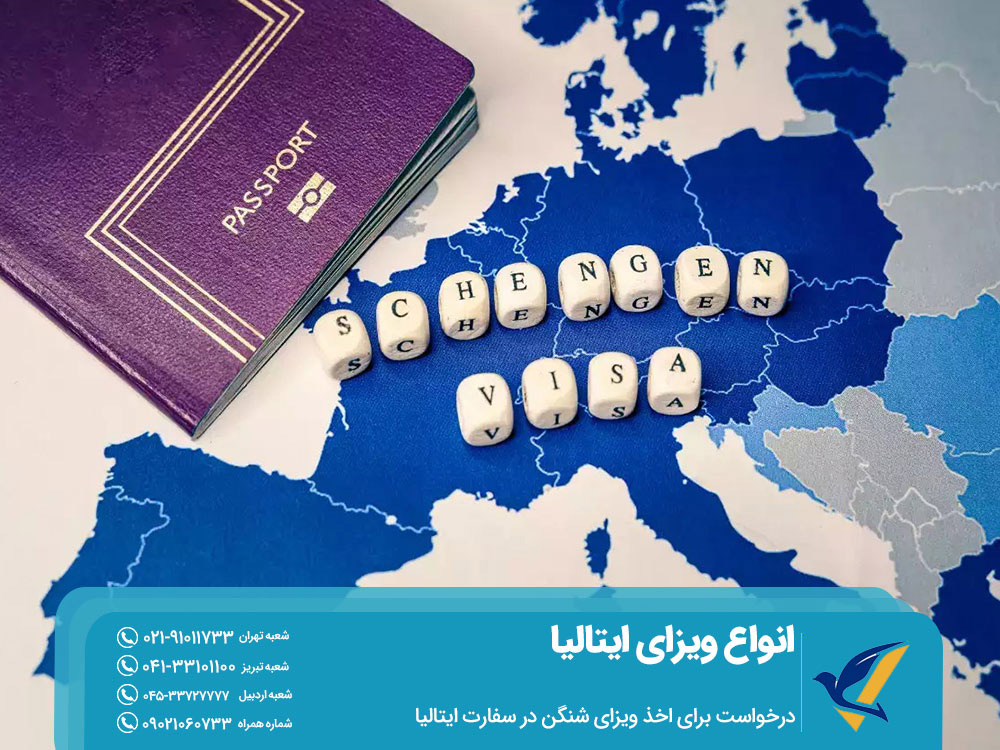
Who Can Apply for a Schengen Visa at the Italian Embassy?
To meet the requirements for applying for any type of short-term Italian visa (Schengen), one of the following conditions must apply to your situation:
- You will not visit any other Schengen country apart from Italy.
- You will visit other Schengen countries, but your main destination is Italy. This means you will spend more days in Italy than in any other country or, if spending equal time in each country, you will enter the Schengen area through Italy.
Additionally, you may apply for a short-term visa at the Italian embassy or consulate only if you meet the following criteria:
- You are a citizen of the country where you are applying.
- You are a foreign resident with permanent or temporary residence in the country where you are applying.
If you have already obtained a visa for another country, you cannot apply for an Italian visa.
Processing Time for Italian Visas
The processing time for a short-term Italian visa can take up to 15 days. However, depending on the applicant’s specific circumstances, it may be extended to 30 days. In exceptional cases, it could take up to 60 days, especially if the Italian embassy needs to consult with other Schengen consulates. To avoid delays, it is recommended to submit your visa application as early as possible, at least three months before your planned travel date.
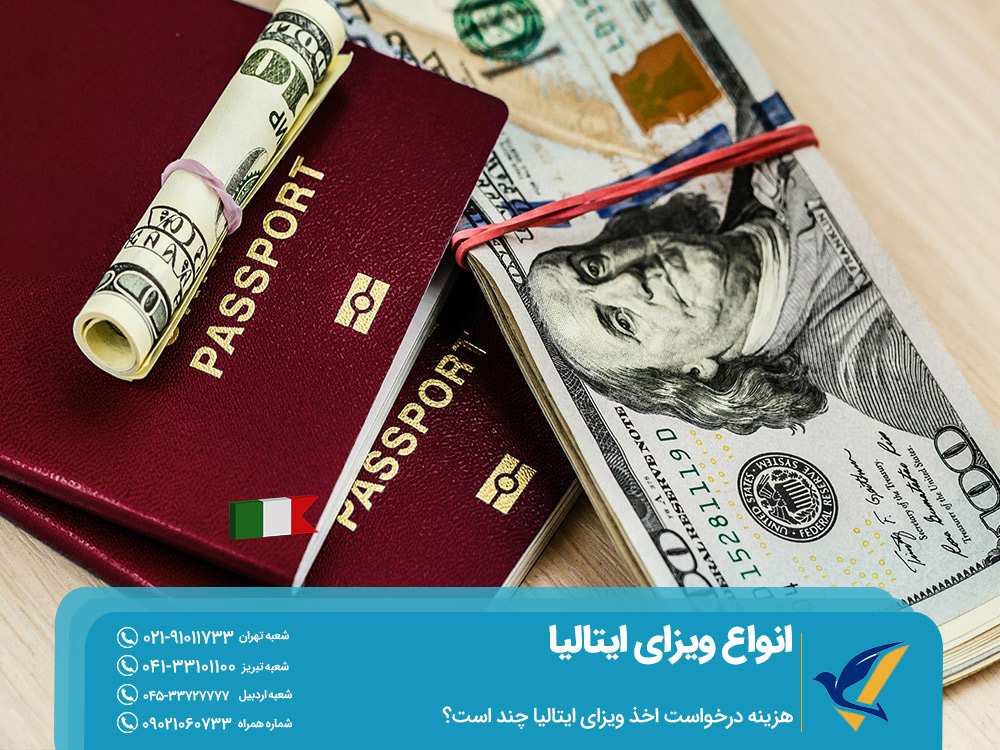
Visa Application Fee for Italy
The visa application fee for short-term visits to Italy is as follows:
- Adults: 80 EUR (96 USD)
- Children aged 6 to 12 years: 40 EUR (48 USD)
- Children under 6 years: Free
- Holders of diplomatic, official, or service passports traveling for official purposes: Free
- Family members of EU/EEA nationals: Free
- Students, pupils, and accompanying teachers during educational trips: Free
- Researchers traveling to Italy for scientific research: Free
- Citizens of Armenia, Azerbaijan, and Russia: 35 USD (42 USD)
The visa fees are calculated based on the current exchange rate from Schengenvisainfo.com and may vary at the time of your application. The fee for Italian visas must be paid when applying and is non-refundable. In case of withdrawal or rejection of the application, the fee will not be refunded.
Duration of Stay in Italy Without a Visa
The duration of stay allowed in Italy without a visa depends on your nationality. The rules for staying without a visa are as follows:
- EU/EEA citizens can stay in Italy for up to 90 days within any 180 days. If they wish to stay longer, they must register with the relevant authorities in Italy.
- Citizens of visa-exempt countries can stay in Italy and other Schengen countries for up to 90 days within 6 months. Citizens from countries like Australia, Israel, Japan, Canada, New Zealand, South Korea, and the USA who wish to stay longer in Italy must obtain a residence permit from the Italian authorities within 3 months of arrival. Citizens of other visa-exempt countries wishing to stay longer must apply for an Italian visa from their country of residence.
- Citizens of countries that have not signed a visa-exemption agreement with Italy and other Schengen countries must obtain a visa before traveling to Italy or any Schengen area country.
Make sure to understand the 180/90 visa rule. Failure to comply with this rule can result in penalties for overstaying in the Schengen area.
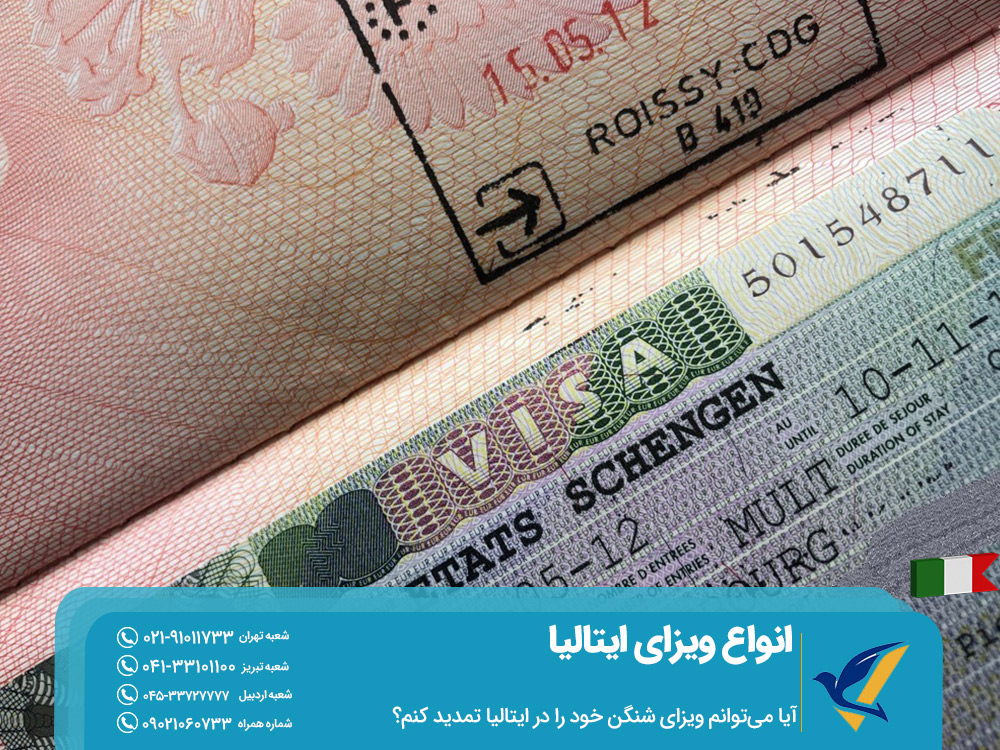
Can I Extend My Schengen Visa in Italy?
Yes, you can extend your Schengen visa in Italy by submitting a request to the Italian Ministry of the Interior. However, visa extensions are only granted in exceptional cases, such as being unable to leave the country, or other justified reasons, such as humanitarian grounds or force majeure. By reviewing the necessary guidelines for extending a Schengen visa in Italy, you will understand the conditions under which you can apply for an extension.
Can My Italian Schengen Visa Be Canceled?
Yes, your Italian Schengen visa can be canceled if the competent Italian authorities determine that the conditions for granting the visa no longer exist. It is important to note that failure to meet the entry requirements set by the visa holder could also result in the cancellation or rejection of the visa by border officers.
Do I Need to Provide Biometrics Every Time I Apply for an Italian Visa?
If you have submitted your fingerprints for a Schengen visa application within the past 59 months, you are not required to provide your fingerprints again. After this period, you will need to submit your fingerprints once more when applying for a visa.
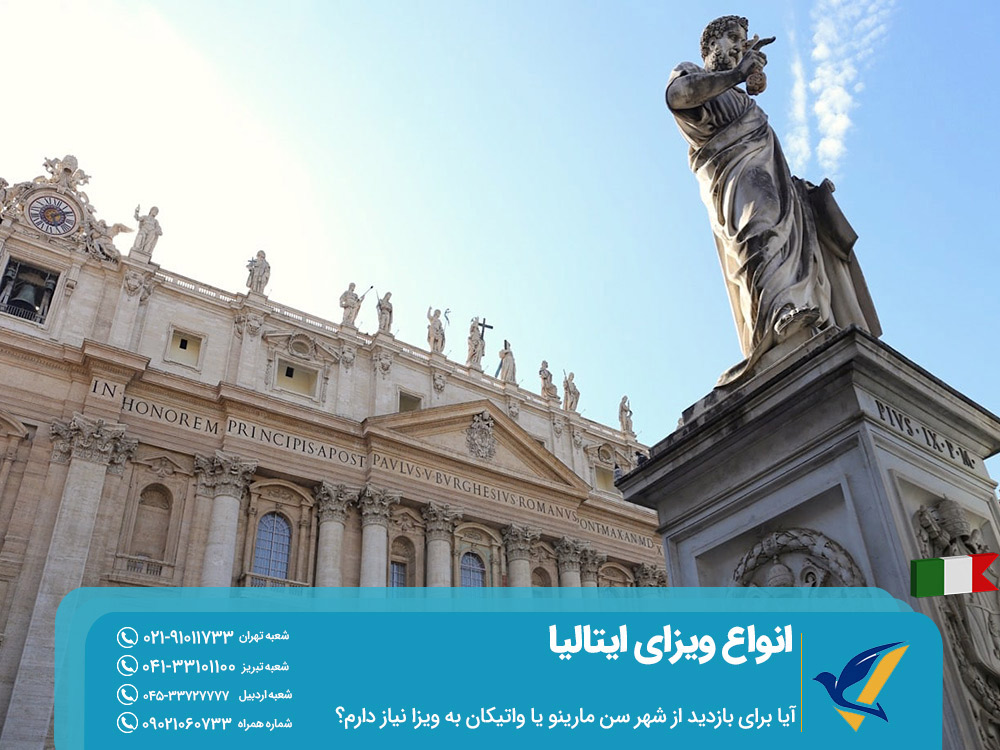
Do I Need a Visa to Visit San Marino or Vatican City?
Although San Marino and Vatican City have not signed the Schengen Agreement, they are considered part of the Schengen Area. If you have an Italian visa, you do not need a separate visa for San Marino or Vatican City. You can freely travel to these states, as there are no border checks when entering Italy.
Summary
Italy, known for its stunning architectural landmarks and delicious cuisine, is a land of diversity, culture, and excitement. As one of the most popular tourist destinations in the world, Italy attracts millions of visitors each year. To travel to Italy, you need to meet the requirements and apply for the appropriate type of Italian visa depending on your travel purpose. An Italian Schengen visa allows you to visit any country in the Schengen Area and stay for up to 90 days within 180 days. Since Italy is part of the Schengen Area, you can enter Italy with a Schengen visa.
For stays longer than 90 days, you will need to apply for a national Italian visa. This article provides comprehensive information about the cost of an Italian visa. For more details on various types of Italian visas, you can visit the Elm Vira website and fill out the free consultation request form to connect with our experts.
میانگین امتیازات 5 از 5
Vote count: 1 Vote